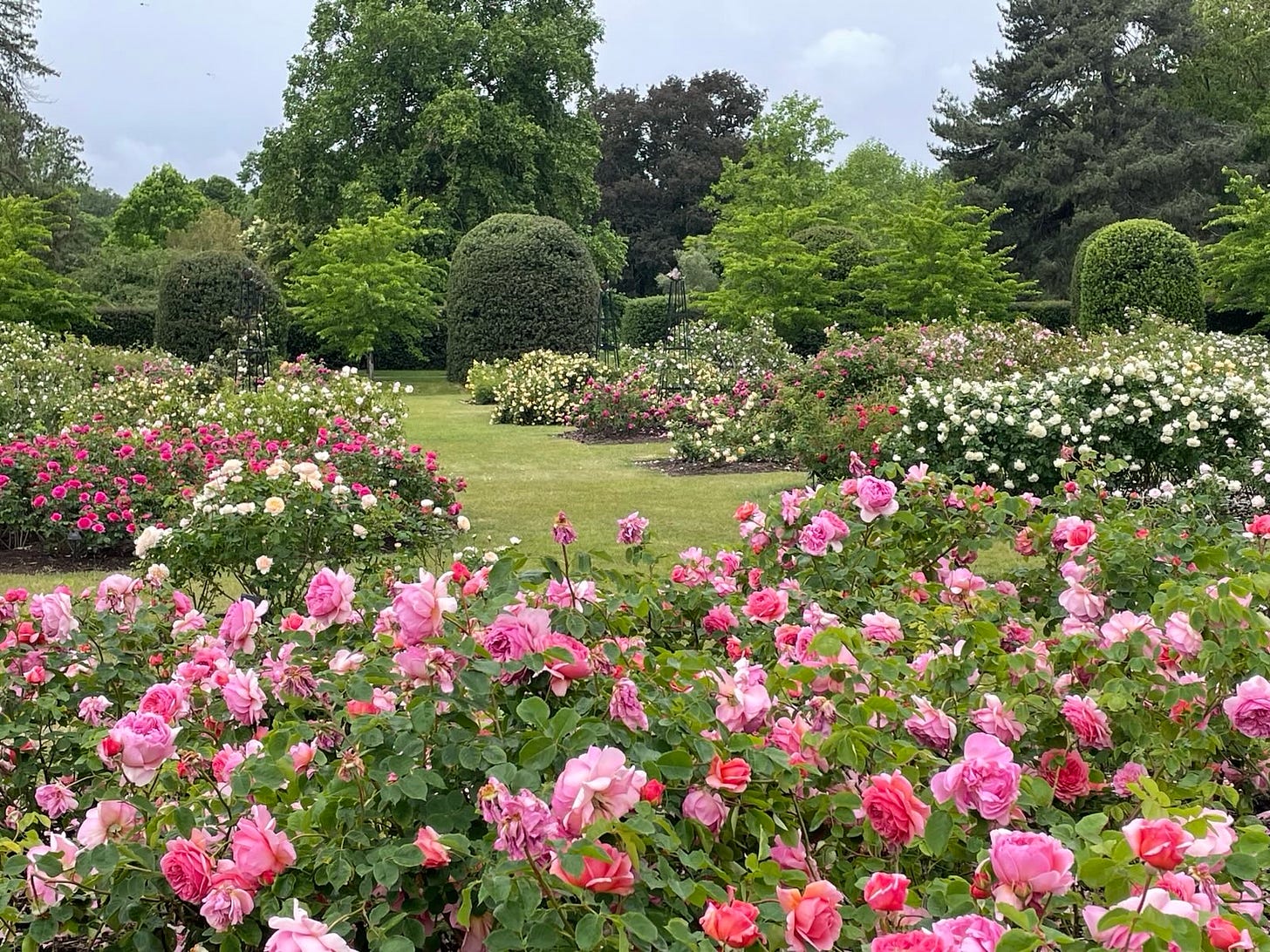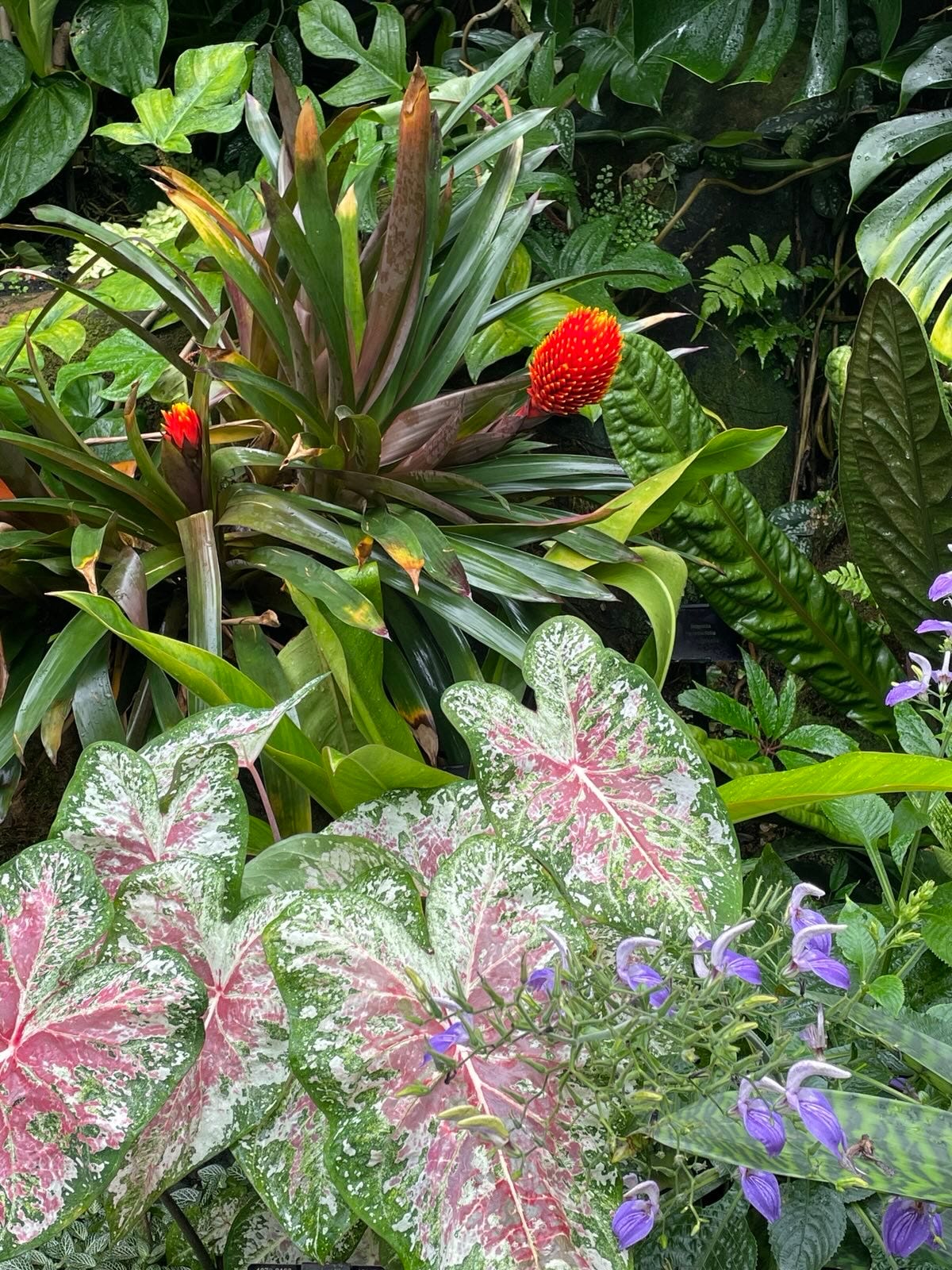Reflections on travels
On the millions of people striving to (and succeeding at) keeping the achievements of Western Civilization from the clutches of fascism, xenophobia, know-nothingism, and conspiracy-mongering
Our final, glorious days in London included a magnificent special exhibit at the Courtauld Gallery (which has its own stunning impressionist and post-impressionist collection); an enchanting day at the London Zoo (where we could walk into enclosures and stand within arms’ reach of lemurs or a collection of rainforest animals, visit the mammoth Penguin Beach, and marvel at two baby gorillas), a lovely morning at Kew Gardens, a marvelous play with John Lithgow, a thrilling opera, and a day trip to Portsmouth to see a full array of British Navy ships and exhibits. And I’d be remiss if I didn’t mention the Indian food and all the gelato (not Spain, but not shabby).
We have a family expression about travel: “It’s good to go away and good to come home.” As those of you who have been following me have gathered, travel engages all my senses, indulges my interests, and provides plenty of insights about the world and the United States’ role in it. Given how maddening, cruel, disheartening, and heartbreaking the American political scene is at the moment, this particular trip gave me a much-needed opportunity to immerse myself in culture, art, music, food, history, and adventure. Still, reconnecting with family (including Amos!), friends, my dear colleagues at The Contrarian, and you, The Contrarian community, will be a treat…as will be planning for the next trip!
A few lessons truly hit home on this trip.
First and foremost: Other countries, much older than the United States, have gone through grim, even disastrous years, decades, or centuries. And yet in Europe, the spirit of liberal democracy (however imperfect) remains alive and well. A sense of the public good still thrives, and millions of people strive to keep the achievements of Western Civilization from the clutches of fascism, xenophobia, know-nothingism, and conspiracy-mongering.
Don’t get me wrong—the United States remains the indispensable nation in a host of ways (e.g., the international trading system, military dominance, popular culture), but the world is carrying on, albeit with dismay, as Americans struggle through its Dark Age. Perhaps the determination not to go the way of Trump and MAGA’s descent into depravity has helped focus our closest allies on mustering military strength, adhering to democratic traditions, and recommitting to a shared European community.
America can and must halt its flirtation with fascism, its media myopia (which diverts attention from the fight for democratic survival while training its lens on faux scandals and horserace coverage), and its self-sabotage (blowing up higher education, making ourselves inhospitable to immigrants, and undermining the rule of law, etc.) While Trump is more malevolent than the world might have expected, he is also more pathetic, incoherent, and easily sidetracked (some would say “bought off”). The end of the MAGA era will come.
In other words, the democratic Western world is not following Trump’s lead; it continues to furiously resist him (in elections and support for Ukraine, for example). When America recommits to its values and international orientation, democratic allies will be there to anchor and fortify us.
Second: While Trump’s mindless assault on higher education, scientific research, artistic and academic freedom, and expertise of all kinds batters institutions and even undermines American prominence in certain fields, he cannot destroy our collective cultural heritage, ingenuity, and economic dynamism. In part, that is because our scientific and cultural advances have been internationalized, reinforced, and incorporated into the fabric of developed societies around the globe. In theaters and museums in London, at a performance of the opera Othello in Bilbao, in the economic research at European universities, and in the Classical architecture, art, and engineering embedded throughout Europe (not to mention the technology that can store and transmit all that), the totality of free thought and liberal society cannot be erased. It is bigger than one politician or even one era of American reactionary fervor.
That brings us to a critical point about the fight to preserve democracy: we all must recommit not only to political action in defense of democracy but to support dynamic culture and liberal education. Whether it was Vaclav Havel’s (Czech playwright and democratic activist) commitment to the arts or the 2020 Open Letter of artists to the EU or the Brookings study on democracy co-authored by our own publisher, Norm Eisen, democratic activists have long recognized that cultural freedom and artistic expression are essential to thwarting authoritarianism.
“The tightening control over artistic freedoms and content is common under autocratic regimes and aspiring authoritarian leaders, given that art and culture often allow opposition through political commentary,” Jonathan Katz wrote recently. “Globally and across history, autocratic actors have taken actions like those we are starting to see in the early days of the current administration, attempting to supplant artistic endeavors in favor of censorship and propaganda.”
Examples from Nazi Germany to the USSR to Argentina’s dictatorship to Poland and Hungary’s autocratic regimes remind us that autocrats invariably try to stamp out cultural expression, critical thinking, and artistic freedom, all of which pose a threat to autocratic control. “Freedom of expression and diversity of opinions are fundamental to our democracy and our country,” Katz argued. “It is essential to avoid following the path of artistic and cultural censorship that we have seen take root in autocracies around the world.”
And so, as we pursue political causes and encourage resistance, we must also nurture the arts and other intellectual pursuits—both in our individual capacities and through organizations to promote the arts and art education. “Free artistic and cultural expression… is one of the primary vehicles for citizens to express their opinions, including political discontent. They are also essential to the health of our nation’s democracy amidst growing threats.”
As I return from a magnificent adventure, I have a renewed understanding of the serious threats America faces from reactionary, autocratic forces. However, I am buoyed by the strength of Western democratic people and the power of the arts and sciences to sustain our liberal, democratic values.








What an encouraging post! Thank you Jen.
It is ilike your favorite no nonsense relative has returned for the holidays. Someone who listens, delivers the truth to your adolescent brain and tells you that there are good things you can do about the world and for you to experience. But first consider cleaning up your room and helping a bit more around the house. Welcome home Jen.